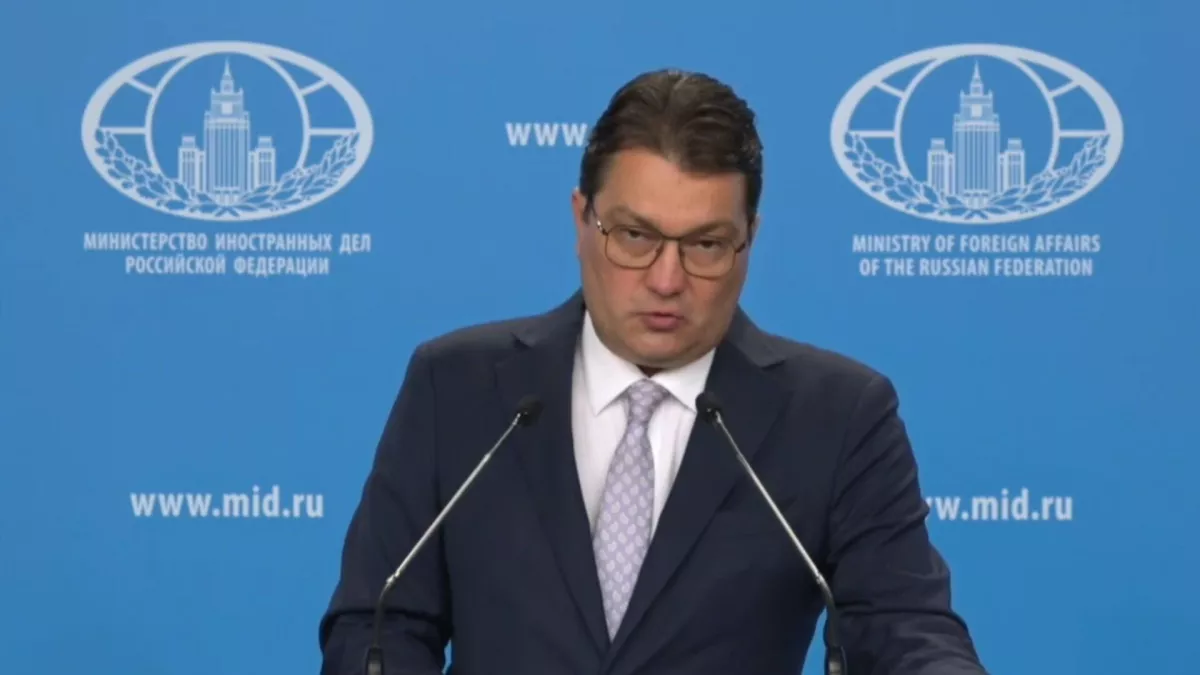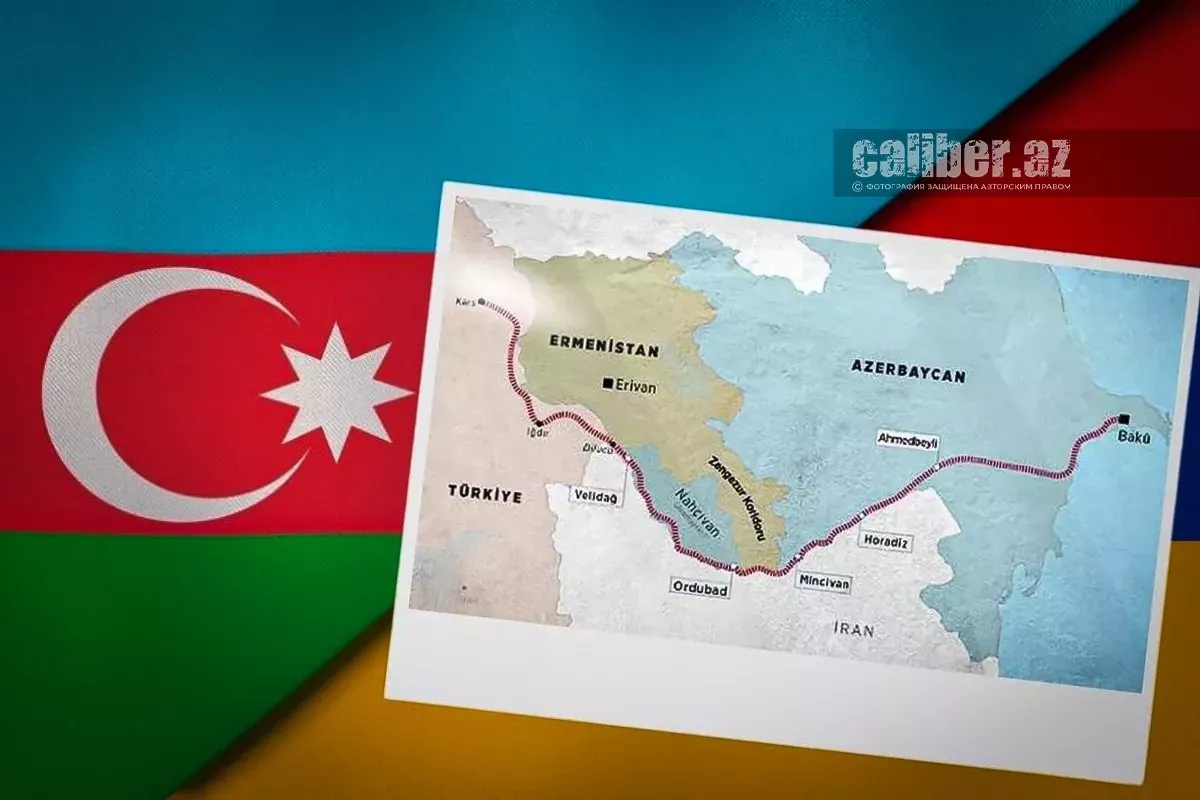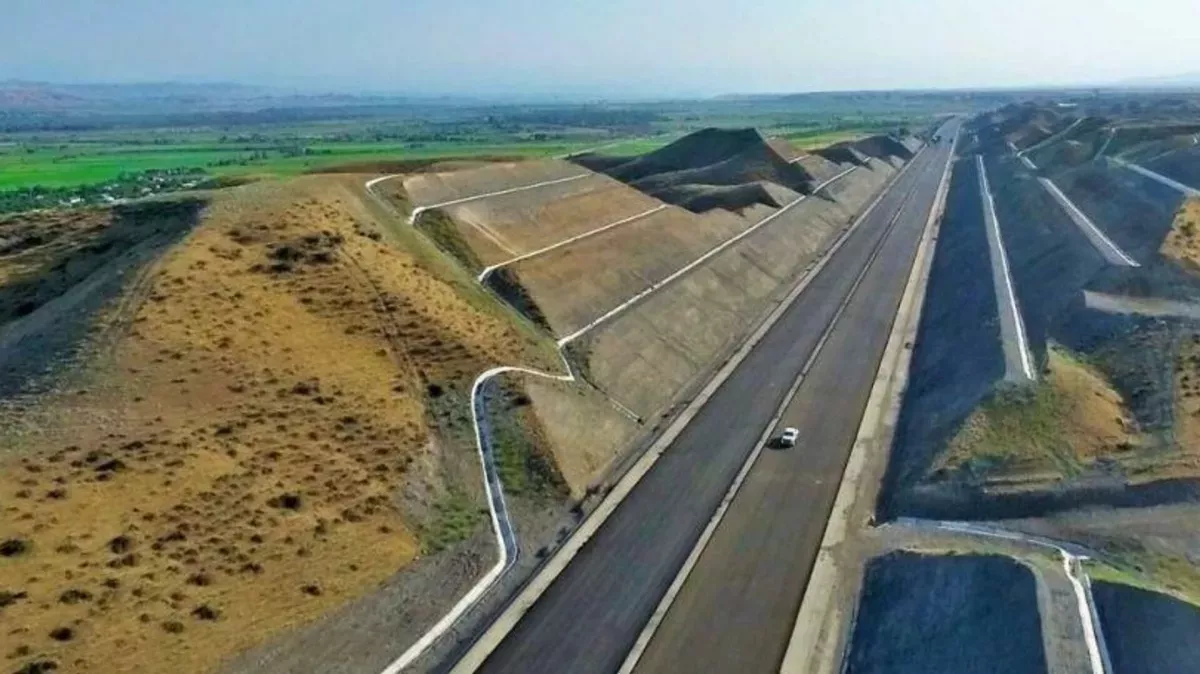Train gone: Moscow too late to dictate its terms on opening Zangezur corridor After 4+ years of neglect
A curious comment regarding the Joint Declaration, signed in Washington on August 8 by the leaders of Azerbaijan, the United States, and Armenia, was made by the Russian Foreign Ministry. “The Russian Foreign Ministry has reserved its opinion on the Washington Declaration, signed by Yerevan and Baku, until it studies the details of the project, which have not yet been made public,” said Alexey Fadeev, Deputy Director of the Information Policy Department of the Russian Foreign Ministry, at a briefing, adding that when unblocking communication routes through Armenia’s Syunik region (Zangezur — Ed.), the presence of Russian border guards must be taken into account.
There’s nothing particularly unusual in these words. Russian border guards do indeed serve on certain sections of the Armenian-Iranian border, and it is perfectly natural that American companies coming to Armenia to operate the Zangezur corridor will need to somehow delineate areas of control with the Russian border service, at least for security purposes.
However, Fadeev’s statements become increasingly controversial. “As we have noted earlier, the involvement of extraregional forces in the South Caucasus should advance a peaceful agenda, not create new problems and divisions. We have also pointed out that Armenia’s membership in the EAEU and the presence of Russian border guards in the Syunik region must be taken into account. We believe this should be considered when working out the details of the project,” he said.

And if we don’t take on the bold task of analyzing the legal conflicts (which is the domain of lawyers specializing in commercial law) related to the relationship between the Washington Declaration and the provisions of the EAEU, we fundamentally disagree about the creation of dividing lines. Anything intended to bring peace and stability to the South Caucasus, by definition, cannot be divisive. At the same time, we are fully aware that, with this kind of euphemism, the Russian Foreign Ministry is simply expressing its concern about U.S. geopolitical competition.
However, the Russian diplomat goes on to make statements that, in our view, lack legal logic. He stated that Russia considers the trilateral agreements of the leaders of Russia, Armenia, and Azerbaijan from 2020–2022 to still be valid, since none of the parties has announced their withdrawal from these agreements, implicitly hinting that the Washington Declaration contradicts the Trilateral Statement.
An interesting reasoning. Let’s go step by step. The Russian Foreign Ministry’s concerns are mostly about paragraph 9 of the Trilateral Statement. “All economic and transport connections in the region will be unblocked. The Republic of Armenia guarantees the security of transport links between the western regions of the Republic of Azerbaijan and the Nakhchivan Autonomous Republic in order to ensure the unhindered movement of people, vehicles, and cargo in both directions. Control over transport communications is carried out by the Russian Federal Security Service’s Border Guard authorities,” reads this paragraph.
That is, four and a half years have already passed since the signing of the Trilateral Statement, and Moscow has only now remembered that it regulated the regime of the Zangezur Corridor.

A fair question arises: if Moscow considered it so necessary to follow paragraph 9 of the Trilateral Statement, why did it not facilitate its implementation? Why did it not push for the opening of the land corridor under the control of its FSB? At the same time, the Russian Foreign Ministry could argue that Moscow’s obligations under the Trilateral Statement only come into force after Armenia unblocks the communications.
However, such formalism would lie outside the entire legal context of the Trilateral Statement. And the context is as follows: following its defeat in the war with Azerbaijan, which restored its territorial integrity, Armenia undertook the obligation to provide a land corridor from the main part of Azerbaijan to Nakhchivan. This obligation is reflected in the first part of paragraph 9. Let us quote it again: “All economic and transport connections in the region will be unblocked. The Republic of Armenia guarantees the security of transport links between the western regions of the Republic of Azerbaijan and the Nakhchivan Autonomous Republic in order to ensure the unhindered movement of people, vehicles, and cargo in both directions.”
The continuation of this paragraph, which constitutes its second part, reads as follows: “Control over transport communications is carried out by the Russian Federal Security Service’s Border Guard authorities.” It is very important to note here that this provision reflects not so much a right of the Russian side as its obligation toward Azerbaijan.
Thus, Baku was supposed to obtain the right to unhindered and secure land access to Nakhchivan, the Armenian side undertook the obligation to provide such a route, and the Russian side committed to overseeing transport communications.
However, neither the Armenian nor the Russian sides were in a hurry to fulfill these obligations toward Azerbaijan. One could even draw a further-reaching conclusion: the mutual silence of Yerevan and Moscow regarding the implementation of paragraph 9 eventually began to appear as a sort of collusion between the two parties to the Trilateral Statement against the third party, aimed at sabotaging its rights.
Theoretically, Azerbaijan could have used force to open the corridor; however, Baku did not end one war in order to start another. Azerbaijan concluded the war to establish peace and stability. The road to Nakhchivan is one of the symbols of that peace and stability.
And perhaps Azerbaijan would have waited even longer for Armenia and Russia to fulfill its rightful condition under the Trilateral Statement, if Yerevan had not decided to transfer the responsibility for overseeing the route to the American side. Under these circumstances, Baku can only welcome such a development, as it raises hopes for the swift implementation of the central provision of paragraph 9. The fact that the Russian side has been unable to resolve this issue over four years indirectly demonstrates either its lack of interest or its inability to fulfill this provision of the statement. This, in turn, fully justifies Yerevan’s choice of the United States as the “operator” of the road.
It is also crucial to understand which part of paragraph 9 should be considered primary and which secondary. The condition regarding the opening of the Zangezur corridor is the fundamental provision, while the condition concerning control by the FSB is secondary. While respecting the Trilateral Statement, Baku could not sacrifice the fundamental provision to the secondary one. In these circumstances, it is entirely irrelevant to Baku who exercises control over the road on sovereign Armenian territory. Any choice by Armenia that effectively resolved the issue of opening the communication route, given the inaction of the Russian side in fulfilling its part of paragraph 9, would satisfy Azerbaijan, as it fulfills the primary provision of paragraph 9.

It is also necessary to recall that it was Moscow, not Baku, that displayed neglect toward the Trilateral Statement, while Baku, on the contrary, sought its implementation. One need only recall Moscow’s unwillingness to facilitate paragraph 4 concerning the withdrawal of Armenian armed forces from the Karabakh region. Instead, the Russian Ministry of Defense almost conducted joint exercises with them. As a result, Baku had to implement this paragraph on its own, carrying out a brilliant one-day counterterrorism operation. In exactly the same manner, Baku later endorsed a joint declaration providing for the operation of the Armenian section of the Zangezur corridor under U.S. oversight.
Thus, the Washington Declaration does not represent a violation of the Trilateral Statement, but rather its implementation.
The Russian diplomat also noted that “the Russian Foreign Ministry and leadership have repeatedly stated that Moscow is ready to assist its partners in normalising relations.” Unfortunately, this is no more than a polite formulation, which, following diplomatic tradition, does not even attempt to conceal the true state of affairs. The point is that, on the matter of unblocking communications, Moscow’s role was not merely to offer assistance to its partners, but to demand that Yerevan fulfil its obligations so that Russia could begin fulfilling its own.
And now, pardon the pun—the train has already left the station.








